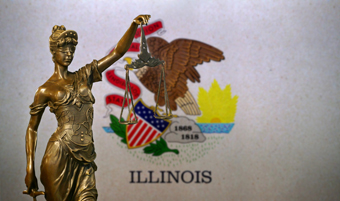Illinois enacts significant changes to restrictive covenants in 2022

Client Update, P.A. 102-358
Effective January 1, 2022, Illinois law regarding the enforceability of non-compete and non-solicitation agreements changed significantly. Specifically, on January 1, 2022, key provisions of the Illinois Freedom to Work Act went into effect, limiting who may agree to restrictive covenants restricting competition and solicitation post-employment, providing new COVID-specific restrictions, codifying common-law standards, and imposing considerable penalties for non-compliance. Following is an overview of the key changes that went into effect January 1, 2022.
KEY CHANGES
- Employees Subject to Non-compete and Non-solicit Covenants: Illinois law now provides that employers may not enter into a non-compete covenant with an employee unless the employee’s earnings exceed $75,000 per year (which minimum threshold increases by $5,000 in 2027, 2032, and 2037). Notably, that minimum is set to increase by $5,000 in 2027, 2032, and 2037 (at which time earnings must exceed $90,000). Similarly, the new law now prohibits non-solicit covenants for employees earning less than $45,000 per year (which minimum threshold increases by $2,500 in 2027, 2032, and 2037).
- COVID Provisions: The new law bars employers from entering into non-compete or non-solicit covenants with any employee terminated, furloughed, or laid off as a result of the COVID-19 pandemic. The prohibition will not apply, however, if the employer pays compensation equivalent to the employee’s base salary at the time of termination for the period of enforcement (minus compensation earned through subsequent employment during the period of enforcement).
- Codification of Case Law: The new law also now codifies prevailing Illinois case law regarding the enforceability of restrictive covenants. Specifically, the new law provides that non-compete or non-solicit covenants will only stand where: (a) the employee receives adequate consideration (defined in the statute and referenced below); (b) the covenant is ancillary to a valid employment relationship; (c) the covenant is no greater than is required for the protection of a legitimate business interest of the employer (defined in the statute and referenced below); (d) the covenant does not impose undue hardship on the employee; and (e) the covenant is not injurious to the public.
- For there to be “adequate consideration,” (1) the employee must have worked for the employer for at least 2 years after the employee signed the restrictive covenant, or (2) the employer must have otherwise provided consideration adequate to support the restrictive covenant, which consideration can consist of a period of employment plus additional professional or financial benefits or merely professional or financial benefits independently.
- Whether an employer has a legitimate business interest to support the restrictive covenant depends on the totality of the facts and circumstances of the individual case. A restrictive covenant that is enforceable in one case may not be enforceable in another. Factors that may be considered in this analysis include, but are not limited to: (a) the employee’s exposure to the employer’s customer relationships or other employees; (b) the near-permanence of customer relationships; (c) the employee’s acquisition, use, or knowledge of confidential information through the employee’s employment; (d) the time restrictions; (e) the geographic restrictions; and (f) the scope of the activity restrictions. No factor carries any more weight than any other.
- Procedural Requirements: In addition to the substantive rules, there are procedural requirements under the new law. The employer must (a) advise the employee in writing to consult with an attorney before entering into the covenant, and (b) provide the employee with a copy of the covenant at least 14 calendar days before the commencement of the employee’s employment or provide the employee at least 14 calendar days to review the covenant (although the employee can sign early).
- Noncompliance: The new law further imposes strict new penalties for failure to comply with its provisions. To start, attorney’s fees and costs now must be paid to any employee prevailing on a claim to enforce a covenant not to compete or a covenant not to solicit, in addition to any other remedies available. Additionally, any employer engaging in a pattern or practice prohibited by the new law may be investigated by the Illinois Attorney General, who is also empowered to initiate or intervene in a civil action. Employers subject to AG prosecution face civil penalties of $5,000 for each violation, or $10,000 for each repeat violation within a five-year period.
This article is designed to provide a general overview of the new law. Employers considering restrictive covenants should take steps to ensure such covenants do not violate P.A. 102-358. Please contact Gozdecki, Del Giudice, Americus & Brocato LLP if you need assistance reviewing and/or preparing restrictive covenants.
Please note that information contained in this Client Alert is not and should not be construed as legal advice or opinion nor does this news alert create an attorney-client relationship.

